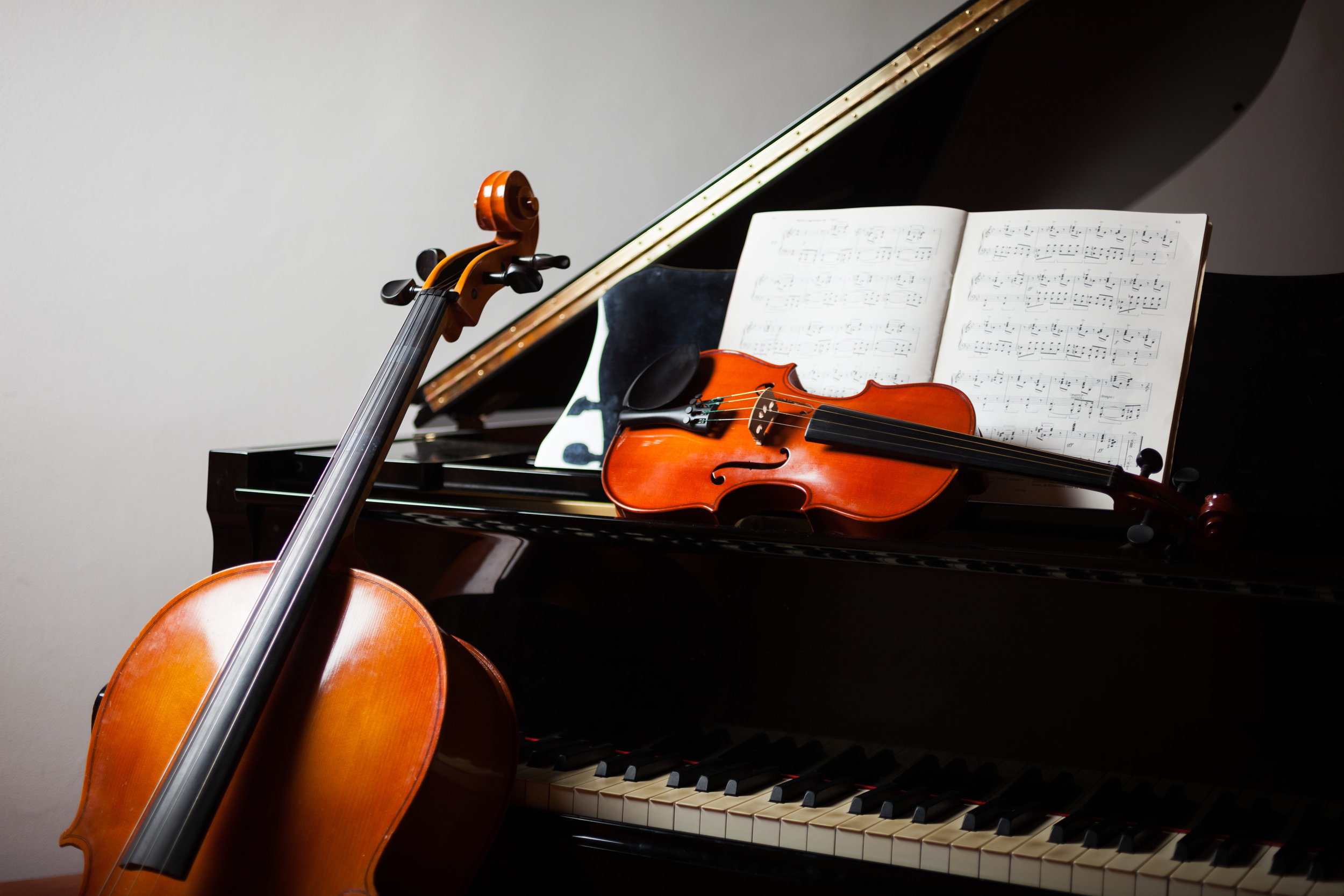In the final two parts of this blogging mini-series, I thought I would give you a bit more insight into the professional classical and jazz industries. Hopefully this will give you more of an understanding of the lives and careers of the musicians you can book through Tailor Made Music Agency. I'll start this week with the classical music industry.
What types of work are available to classical musicians?
Broadly speaking, for instrumentalists the classical music industry is divided into three different types of work – solo, chamber and orchestral. For singers we might also add opera and choral work. There is cross-over between these types of work and although musicians might specialise, you can expect most professional musicians to be working within at least two of them. Within these, the work might involve a combination of live performances, recordings, theatre and opera, television work, religious services and ceremonies.
Soloists
The superstars of the industry are the soloists. Top-flight international soloists are usually represented by an agent, who deals with concert promoters around the world on their behalf, negotiates their fees, and manages their diary. They don’t usually have to worry about things like booking travel, or updating their biography, as it’s the agent’s job to do that for them! Sometimes soloists might perform concertos with orchestras in large concert halls. Other times they might perform solo recitals in smaller venues.
Some musicians will do self-promoted solo work, alongside other types of work or early on in their careers. It can be a tough road to the top, seeking the attention of concert promoters, running all your own PR and marketing and organising the logistics yourself. The soloists who make it big will usually do so through a combination of natural talent, extreme hard work and dedication, networking, and sometimes just being in the right place at the right time. Some will have huge success early in life, perhaps by winning a big competition like BBC Young Musician of the Year or catching the attention of a top conductor or record company. Others will build their career gradually and make a name for themselves later in life. Needless to say, international soloists who have their own agents don’t tend to be available for many wedding and event bookings! However, at Tailor Made Music Agency I work with a lot of musicians who are in those early stages of their career and destined for big things (so I can say “you heard them here first!”)
Chamber musicians
Chamber musicians are those that work primarily in small ensembles, performing recitals in smaller venues. Certain types of chamber ensemble, particularly string quartets and piano trios, have the possibility of working full-time with their ensemble. This is because there is a huge amount of music written for them, thanks to composers such as Mozart, Haydn and Beethoven who popularised these line-ups. Like top-flight soloists, really successful full-time string quartets or piano trios might also be represented by an agent.
Most chamber ensembles will represent themselves though and are likely to supplement their work with other types of work such as solo or orchestral. It takes real dedication to keep a chamber ensemble together. So many groups form at music college and set out to make a career together when they graduate, only to fall apart within a few years as other demands start to take priority. Playing for weddings and events can be a great way for a chamber ensemble to have a sustainable career as a group, alongside their concert work.
I love chamber ensembles at Tailor Made Music Agency! Why? Because they know how to really work together as an ensemble. Dedicated chamber musicians will rehearse together so intensely they almost know what the other members of their ensemble are thinking. This type of collaborative work often forms a big part of their music college training. When it comes to wedding and event bookings, it puts them a cut above the rest and means they can produce performances of real quality. They can add touches of musicality that ad hoc groups are unlikely to be able to achieve. For classical ensembles, I aim to work with fixed groups as much as possible, which is what makes me different from many other agencies. Even on the rare occasion a deputy needs to be used, for example due to illness, they will be so tight as an ensemble that the new person (who will always be someone well-known to the group) slots in easily without any risk to the performance.
Orchestral musicians
Orchestral musicians do exactly what you might think – rehearse and perform with orchestras! They might have a full-time job with one particular symphony orchestra, or they might ‘freelance’ with lots of different orchestras. Orchestral jobs are in high demand. Even to be considered for a job with a top orchestra is a great achievement so if you see that a musician has been ‘on trial’ with an orchestra you’ll know that they are exceptionally good. Orchestras are managed by teams of administrators (people like me!) who sort out all the logistics, enabling the musicians to rehearse and perform the music without too many distractions.
Orchestral musicians with full-time jobs are understandably unlikely to be available for many wedding and event bookings, but freelancers often combine this type of work with their orchestral playing. Freelance orchestral work often comes in at short notice, so these musicians must be very good at managing their ever-changing diaries. A typical freelance orchestral job will be a week long, starting on Monday with rehearsals during normal working hours, and an evening performance at the end of the week. Often this leaves weekends free for taking on wedding bookings, but does explain why musicians, unlike some other wedding suppliers, don’t tend to drop their prices for weekday weddings!
British orchestral musicians have a reputation internationally for being first-rate ‘sight readers’, which means they can play a piece near-perfectly the first time they see the music and learn pieces extremely quickly. This skill is a huge benefit to those doing wedding and event bookings, as they need to have a lot of repertoire for a two or three hour booking.
What things might classical musicians do outside of the classical music industry?
There is a multitude of other types of work classical musicians might do which don’t fall into the above categories. Although perhaps not strictly within the classical music industry, they all combine to give classical musicians sustainable and fulfilling careers.
Here are a few examples:
Perform with pop, rock or crossover musicians, making records, going on tour and appearing on television with them
Perform in musical theatre shows or in other types of theatre performances
Teach and do other educational work
Serve in the military (you might be surprised to hear that the British armed forces are the biggest employers of musicians in the country, with over 1000 full-time professional players)
And, of course, play for weddings and events!






